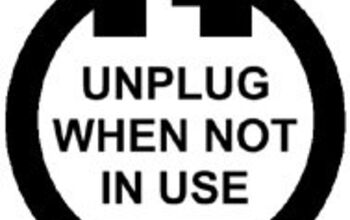General Motors Death Watch 64: Too Rich to Die
When things are going well, when the US economy's humming along and the right models await eager buyers on dealer lots, being the world's largest auto maker in the world's largest automobile market is a license to print money. When the stars are aligned, GM's economies of scale, eight brand range and vast dealer network make it an almost obscenely profitable enterprise. Lest we forget, The General earned tens of billions of dollars in the SUV-mad 80's and 90's. If you're wondering why GM's fortunes have reversed so quickly, dramatically and irrevocably, there's your answer: they're victims of their own success.
GM execs have two ways to stand out: make more sales (by striking out in new directions) or make more money (by doing more of the same). Since it's hard for GM NOT to make money in good times, GM managers invariably opt for the safer option. Sure, every now and then, someone sets a lofty new goal: selling Cadillacs in Europe, building fuel cell cars, reinvigorating a struggling brand, etc. And then the next group of suits comes along and ignores them. After all, THEY didn't come up with the idea. And big ideas take time. How could a highly-paid exec use a long-term project to score career-boosting credit? No wonder every new generation of vehicles has a new set of names; no one wants to share credit with an old project.
Bottom line: GM execs know that hitching their star to a long-term project like hybrid engines is a quick ticket to a dark basement. No, it's far better to glom onto less adventurous, less expensive ideas that show immediate profit: a rebadged minivan for Buick, a rebadged roadster for Saturn, employee discounts for everyone, a range of newish SUV's, etc. Even if an exec succeeded on a more audacious venture– should he still be alive when it came to fruition– which looks better on their resume: 10,000 conquest sales or an extra three hundred million dollar profit?
GM's inherent timidity has lead to a slow erosion of the company's presence in the marketplace. Even when profits were flowing, The General's general lethargy and allergy to innovation kept its products at least a full model cycle behind Toyota, Chrysler, Hyundai, etc. GM held up its bottom line, but it lost precious market share. Round after round of downsizing has cost the company dearly, perhaps fatally. For every active employee, The General pays pension benefits and health care for 2.5 retirees. That's a Hell of a lot of deadweight. And it's about to get worse; GM recently announced its intention to buy out tens of thousands of active UAW members.
Besieged union members like to point out that GM made this bed. They're right. Back when GM had a mountain of money, The General's generals traded a significant proportion of their immense wealth for labor peace– and then backed themselves into a corner. The General's switch to just-in-time inventory and production elevated labor peace from reassuring to essential. Slim inventories are a great thing for a cost-conscious company (and a stick that GM's competition used to beat them with), but the process handed enormous power to GM's unions. [Note: before giving your partner a loaded gun, make sure you both mean the same thing by the word "partner.']
And now GM is cash-strapped. Oh wait, it isn't. If the sale of their GMAC finance unit goes through, it'll dump $12b into the corporate coffers. And if history serves, GM will use the cash to pay off the unions, keep making the same short-sighted decisions that brought it to the brink, and hope the market turns in their favor. Using the cash to hive-off two or three companies would be better for both the corporation and its assets. Cadillac is eminently saleable. Chevy is a respectable budget car company with a good truck arm. Someone's bound to buy Hummer. A foreign brand might buy Saturn just for the dealer network. Alternatively, GM could spin off SAAB and Hummer, kill Pontiac and Buick, and grow Chevrolet and Cadillac.
In whatever guise, a smaller GM would be a wiser GM. Constricted resources would increase accountability and force the company to sort itself out for both the short and long term. Once again, the problem is… too much money. For one thing, the $12b from the GMAC sale will make it virtually impossible to wrest concessions from the UAW. For another, the current downturn may shake-up GM's Board of Bystanders, but the stock price is still too high for a hostile takeover. Sooner or later, bankruptcy looms. Can the world's largest automaker survive bankruptcy intact? Will the pieces still be viable after Chapter 11? Watch this space…
More by Andrew Dederer
Latest Car Reviews
Read moreLatest Product Reviews
Read moreRecent Comments
- Lou_BC Collective bargaining provides workers with the ability to counter a rather one-sided relationship. Let them exercise their democratic right to vote. I found it interesting that Conservative leaders were against unionization. The fear there stems from unions preferring left leaning political parties. Wouldn't a "populist" party favour unionization?
- Jrhurren I enjoyed this
- Jeff Corey, Thanks again for this series on the Eldorado.
- AZFelix If I ever buy a GM product, this will be the one.
- IBx1 Everyone in the working class (if you’re not in the obscenely wealthy capital class and you perform work for money you’re working class) should unionize.

































Comments
Join the conversation